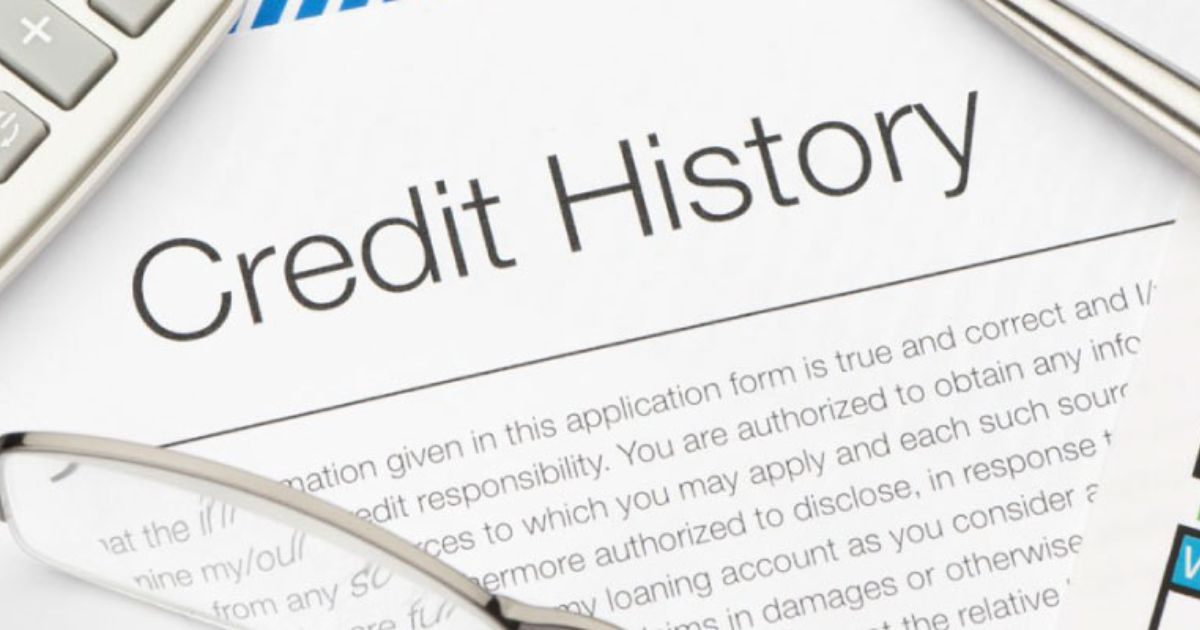In today’s ever-evolving business landscape, entrepreneurs and professionals alike are constantly seeking innovative ways to access the financial resources needed to grow and succeed. One option that has gained significant popularity is obtaining a business credit card, even without having an established business. This article delves into the intricacies of securing a business credit card without a traditional business, providing valuable insights, step-by-step guidance, and essential tips for those aspiring to navigate this path with confidence and ease.
Key Takeaways
- Strong personal credit history and proof of income are essential eligibility requirements for obtaining a business credit card without a business.
- Alternative documentation such as tax returns, bank statements, or invoices can be used to establish financial stability and credibility.
- Building a strong personal credit history by paying bills on time, maintaining low credit card balances, and regularly reviewing credit reports can increase eligibility for a business credit card.
- Business credit cards offer benefits and advantages such as improved cash flow, enhanced purchasing power, access to larger purchases, potential cost savings, and opportunities to earn rewards or cash back on expenses.
Determining Eligibility Requirements
Eligibility requirements for obtaining a business credit card without a business typically involve demonstrating a strong personal credit history and providing proof of income. When applying for a business credit card as an individual, lenders will consider your personal credit score, payment history, and debt-to-income ratio. A high credit score, usually above 700, is preferred, as it demonstrates responsible financial management.
Lenders also want to see a consistent income stream to ensure that you can make timely credit card payments. This can be demonstrated through pay stubs, bank statements, or tax returns. Additionally, some lenders may require a minimum income threshold to qualify for a business credit card. By meeting these eligibility requirements, you can increase your chances of being approved for a business credit card without having an established business.
Choosing the Right Card for Your Needs
When selecting the most suitable option, it is important to carefully consider your specific requirements and financial goals. Here are three key factors to consider when choosing the right business credit card:
- Rewards and Benefits: Look for a card that offers rewards and benefits that align with your business needs. This could include cash back on purchases, travel rewards, or discounts on business-related expenses.
- Interest Rates and Fees: Compare the interest rates and fees associated with different cards. Look for a card that offers competitive rates and low or no annual fees to help minimize costs.
- Credit Limit: Consider the credit limit offered by each card and ensure it meets your business’s spending needs. A higher credit limit can provide greater flexibility and purchasing power.
Establishing Your Business Identity
Establishing a clear and distinct business identity is crucial for building a strong and reputable brand in the market. Your brand identity conveys who you are as a business, what you stand for, and what sets you apart from your competitors. It is the foundation upon which your business is built and is essential for attracting and retaining customers. To establish your business identity, you need to define your mission, vision, and values. This involves understanding your target audience, conducting market research, and identifying your unique selling proposition.
Once you have a clear understanding of your identity, you can then communicate it through various branding elements such as your logo, tagline, website, and marketing materials. Consistency is key in maintaining a strong business identity, as it helps to establish trust and credibility with your customers. By establishing a clear and distinct business identity, you will not only differentiate yourself in the market but also create a sense of belonging for your customers, who will feel a connection to your brand and what it represents.
Building a Strong Personal Credit History
Maintaining a positive payment history and low credit utilization are key factors in building a strong personal credit history. By consistently making on-time payments and keeping your credit utilization ratio low, you demonstrate responsible financial behavior and establish a solid credit foundation. Here are three important strategies to help you build a strong personal credit history:
- Pay all your bills on time: Late payments can have a negative impact on your credit score. Set up automatic payments or reminders to ensure you never miss a due date.
- Keep your credit card balances low: Aim to use no more than 30% of your available credit. High credit utilization can indicate financial instability and negatively affect your credit score.
- Regularly review your credit report: Monitoring your credit report allows you to identify any errors or discrepancies that could be impacting your credit history. Addressing these issues promptly can help maintain a strong credit standing.
Providing Supporting Documentation
When applying for a business credit card without a business, it is crucial to provide supporting documentation to strengthen your application. Alternative document options such as tax returns, bank statements, or invoices can help establish your financial stability and credibility. Proof of personal income and a strong personal credit history can also be utilized to demonstrate your ability to manage credit responsibly.
Alternative Document Options
One option for obtaining a business credit card without a business is to provide alternative documents that demonstrate your financial stability and creditworthiness. This approach allows individuals who don’t have a formal business entity to still access the benefits and perks of a business credit card. By providing alternative documents, you can showcase your ability to manage credit responsibly and your potential as a valuable customer to the credit card issuer. Here are three alternative document options to consider:
- Personal tax returns: Submitting your personal tax returns can help establish your income and financial stability, providing evidence of your ability to manage credit.
- Bank statements: Providing bank statements can demonstrate a history of financial responsibility, showing the credit card issuer that you have sufficient funds to support credit card usage.
- Proof of income: Supplying proof of income, such as pay stubs or employment contracts, can help establish your ability to repay any credit card debt.
Proof of Personal Income
When applying for a business credit card without a business, one of the key requirements is proof of personal income. Lenders want to ensure that you have a stable source of income to repay the credit card debt. This can be demonstrated through various documents such as pay stubs, bank statements, tax returns, or a letter from your employer.
To emphasize the importance of proof of personal income, let’s consider the following table:
| Document | Pros | Cons |
|---|---|---|
| Pay stubs | Provides current income information | May not reflect self-employment |
| Bank statements | Shows cash flow and savings | Does not indicate stability |
| Tax returns | Demonstrates annual income | Takes longer to obtain |
| Employer letter | Validates income and employment status | Lenders may require specific format |
It is crucial to gather and submit these documents accurately, as they play a significant role in determining your creditworthiness and eligibility for a business credit card without a business.
Utilizing Personal Credit History
Utilizing personal credit history is an effective way to demonstrate financial responsibility and increase eligibility for a business credit card. By leveraging your personal credit history, you can showcase your ability to manage credit and make timely payments, which can give potential lenders confidence in your financial management skills. Here are three key reasons why utilizing personal credit history is beneficial when applying for a business credit card:
- Establishes a track record: By using personal credit responsibly, you can demonstrate a solid track record of managing credit, which is important for lenders when evaluating your creditworthiness.
- Builds trust with lenders: Showing a history of responsible credit management can help build trust with lenders, making them more likely to approve your application for a business credit card.
- Expands your available credit options: Utilizing personal credit history allows you to tap into a wider range of credit options, increasing your chances of finding a business credit card that suits your needs.
Applying and Managing Your Business Credit Card
Applying and managing your business credit card is a critical step in effectively managing your business finances. Understanding the eligibility criteria for business credit cards and ensuring proper management of the card can provide numerous benefits for your business. By adhering to the guidelines and making timely payments, you can establish a strong credit history and access the various perks and rewards that come with a business credit card.
Eligibility Criteria for Business Credit Cards
To be eligible for a business credit card, individuals must meet certain criteria that demonstrate their ability to manage credit responsibly and provide evidence of their business-related activities or income. Meeting these criteria is crucial for obtaining a business credit card and enjoying its benefits. Here are three key eligibility requirements to consider:
- Personal creditworthiness: Lenders typically assess the creditworthiness of the individual applying for the business credit card. This includes factors such as credit score, payment history, and debt-to-income ratio.
- Proof of business activities: Applicants must provide evidence of their business-related activities, such as invoices, contracts, or business licenses. This helps establish that the credit card will be used for legitimate business purposes.
- Income verification: Lenders may require individuals to provide proof of their income, such as tax returns or bank statements. This ensures that the applicant has the financial means to repay the credit card debt.
Benefits of Proper Management
Proper management of a business credit card can result in a range of advantages, including improved cash flow, enhanced purchasing power, and the ability to earn rewards or cash back on business expenses. When a business credit card is managed effectively, it allows for better control over cash flow by providing a revolving line of credit that can be used for various business expenses. This can help businesses manage their cash flow more efficiently, ensuring that they have funds available when needed.
Additionally, a well-managed business credit card can provide enhanced purchasing power, allowing businesses to make larger purchases or take advantage of discounts and special offers. Finally, many business credit cards offer rewards or cash back programs that allow businesses to earn benefits or money back on their expenses, providing an additional incentive for proper management. By responsibly managing their business credit card, businesses can maximize these advantages and achieve greater financial success.
Frequently Asked Questions
Can I Use a Business Credit Card for Personal Expenses?
Yes, a business credit card can be used for personal expenses. However, it is important to keep personal and business expenses separate for accounting and tax purposes.
Can I Apply for a Business Credit Card if I Have Bad Personal Credit?
While it is possible to obtain a business credit card without a business, the question at hand pertains to whether one can apply for such a card with bad personal credit.
Are There Any Fees Associated With Applying for a Business Credit Card?
There may be fees associated with applying for a business credit card, such as an annual fee or foreign transaction fees. It is important to carefully review the terms and conditions of the card before applying.
Can I Add Additional Authorized Users to My Business Credit Card Account?
Yes, you can add additional authorized users to your business credit card account. This allows you to extend credit privileges to employees or partners, while still maintaining control over the account and monitoring spending.
What Are the Consequences of Not Paying off My Business Credit Card Balance in Full Each Month?
Not paying off your business credit card balance in full each month can result in high interest charges, damage to your credit score, and potential legal actions such as collection efforts or lawsuits by the credit card issuer.
Conclusion
In conclusion, obtaining a business credit card without a business may seem challenging, but it is possible with the right approach. By understanding the eligibility requirements, selecting the appropriate card, establishing your business identity, building a strong personal credit history, providing supporting documentation, and effectively managing your business credit card, you can successfully navigate this process. While some may argue that starting a business is necessary for obtaining a business credit card, it is important to remember that opportunities exist for individuals to access these financial tools and support their entrepreneurial endeavors.









